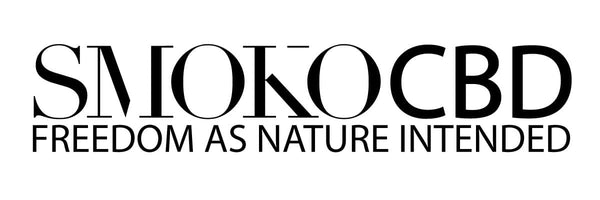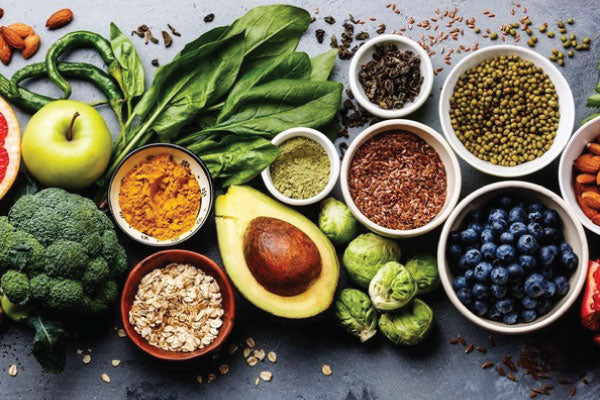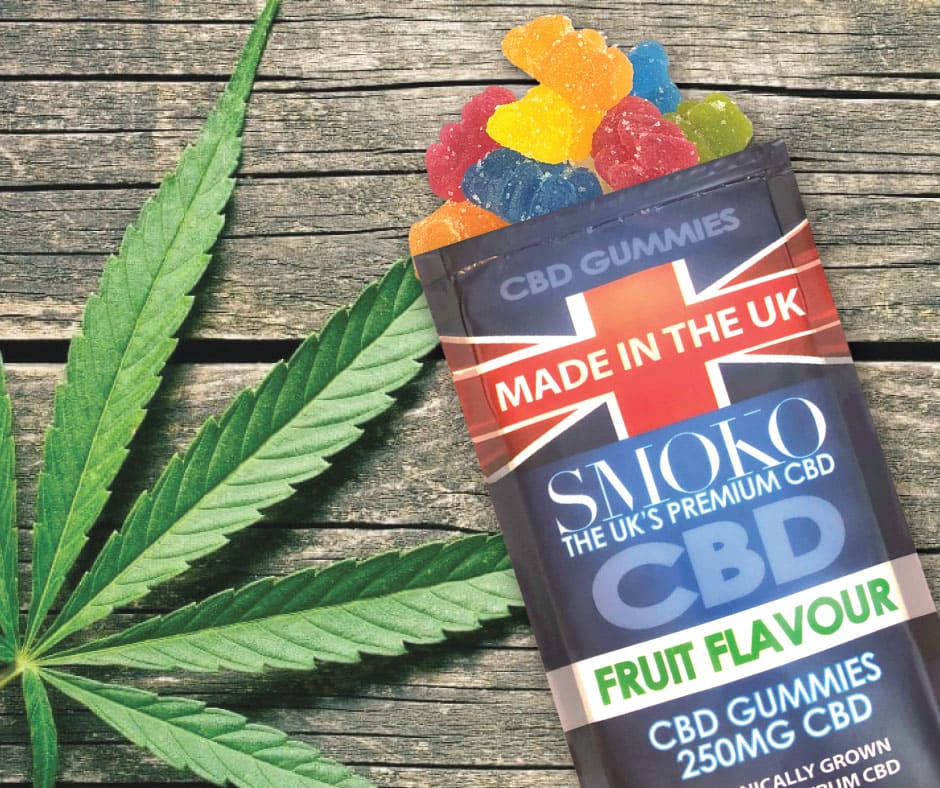Why Britons Are Turning to CBD for Depression Relief

Depression is a widespread issue in the UK, affecting many people's lives. Traditional treatments don't always provide sufficient relief, and some individuals experience undesirable side effects from prescription medications. As a result, a growing number of Britons are exploring alternative options, with CBD becoming a popular choice for managing depression symptoms. This reflects a wider movement in the UK towards complementary therapies for mental well-being.
Interest in CBD has steadily increased since its legalisation. Surveys show that between 8–11% of UK adults had used CBD products by June 2019, often to manage stress, anxiety, and depression. Learn more about this topic.
Understanding the Appeal of CBD
CBD (cannabidiol) offers a different approach to managing depression compared to conventional medications. It interacts with the body's endocannabinoid system (ECS), a complex network that regulates mood, sleep, and pain perception. This system is essential for maintaining homeostasis, and CBD can support its optimal function.
Research published in Frontiers in Psychiatry explores CBD's interaction with serotonin receptors in the brain, which are vital for mood regulation. This interaction may contribute to the reported mood-enhancing effects of CBD.
The Science Behind CBD's Impact on Depression

Many people report positive experiences using CBD to help manage depression. Understanding the science behind these experiences is key. CBD interacts with the body's endocannabinoid system (ECS), a complex network of receptors and neurotransmitters. This system helps regulate essential functions, including mood, sleep, and stress responses. For a deeper dive into the science of CBD, you might find this helpful: Learning more about the science behind CBD.
How CBD Interacts With the Brain
CBD interacts with the ECS in several ways, most notably (in the case of depression) by influencing serotonin receptors. Serotonin is a neurotransmitter vital for mood regulation. Disruptions in serotonin signalling are often linked to depression. A 2022 study in Frontiers in Psychiatry highlights how CBD can modulate serotonin receptor activity, potentially improving mood and lessening depressive symptoms.
CBD may also indirectly increase levels of dopamine, a neurotransmitter connected to feelings of pleasure and motivation. By potentially influencing both serotonin and dopamine, CBD might offer a more balanced approach to mood management than some traditional antidepressants.
Beyond Neurotransmitters: CBD's Anti-Inflammatory Effects
Beyond neurotransmitters, CBD possesses notable anti-inflammatory properties. Chronic inflammation and pain is increasingly recognised as a factor in depression. By reducing inflammation, CBD could potentially address a root cause of depressive symptoms.
This anti-inflammatory action is especially important considering the established link between inflammation and mood disorders. CBD's ability to potentially manage this inflammatory response offers another potential avenue for relief without the risk some more powerful painkillers encompass.
CBD, Neuroplasticity, and Neurogenesis
Emerging research suggests CBD may also promote neuroplasticity, which is the brain's ability to form new neural connections. This process is crucial for learning, adapting, and recovering from mental health difficulties. Furthermore, CBD could contribute to neurogenesis, the growth of new brain cells, particularly in the hippocampus, a brain region associated with memory and mood.
These findings indicate that CBD might support the brain's natural healing and adaptation processes, potentially leading to long-term mood and cognitive improvements. This potential support for neuroplasticity and neurogenesis offers a hopeful outlook for CBD's role in depression management.
Getting Started With CBD for Depression
If you’re new to SMOKO CBD products, always start with a low dose and gradually increase as needed. For example, you could start with one SMOKO CBD soft gel capsule or gummy per day. Or, try a few drops of the SMOKO CBD oral drops a couple of times a day. Observe your body’s response over a few days, and slowly increase the dose only if needed.
The right CBD dosage varies based on individual factors such as body weight, metabolism, and the severity of your depression. Patience and careful observation are key to finding the ideal dose. As individual responses to CBD can vary, finding the optimal dose requires careful observation and adjustment.
Understanding CBD Product Types
-
CBD Isolate: Contains only pure CBD.
-
Broad-Spectrum CBD: Contains other cannabinoids and terpenes, but no THC. SMOKO CBD products use broad-spectrum CBD, maximising potential benefits without THC exposure.
-
Full-Spectrum CBD: Contains all compounds from the cannabis plant, including small amounts of THC. It's crucial to avoid full-spectrum CBD if you are subject to drug testing due to the risk of a positive THC test.
It's also important to consult with a healthcare professional, especially if you're taking other medications due to potential drug interactions. This collaborative approach ensures the safe and effective integration of CBD into your depression management plan.
Beyond Mood: CBD's Multifaceted Benefits for Depression

Depression rarely exists in isolation. It often comes hand-in-hand with other challenges, like anxiety, sleep disturbances, and physical discomfort. This creates a complex web of interconnected symptoms that can be difficult to manage. Fortunately, CBD may offer support on several fronts. For example, CBD's calming properties could be beneficial as depression and anxiety often occur together. You can find more natural remedies for anxiety.
CBD's Impact on the Depressive Symptom Cluster
A 2022 study in Frontiers in Psychiatry examined how CBD interacts with the body's endocannabinoid system (ECS). The ECS plays a significant role in mood regulation, stress response, and emotional processing. The study suggests that CBD might adjust serotonin receptor activity, potentially improving mood and lessening the severity of depression symptoms.
Additionally, CBD may indirectly increase dopamine levels, influencing feelings of motivation and pleasure. Dopamine is often referred to as our internal reward system, making us feel motivated to achieve by releasing dopamine in response to a stimulus like finishing a task or doing well in a test. It can be a double-edged sword with regard to sugary foods and bad habits like smoking, as consuming these products also causes dopamine to be released.
Restful sleep is also crucial for emotional well-being, and CBD may help improve sleep quality. Better sleep allows for more restorative rest, which can lead to improved mood and increased resilience.
CBD may also offer relief for individuals experiencing depression alongside physical discomfort, as it may help manage pain perception. This is especially important because chronic pain can exacerbate depression symptoms.
CBD and Cognitive Function
Furthermore, CBD might help alleviate the brain fog often associated with depression by improving cognitive function. This potential cognitive boost could make everyday tasks feel less demanding and contribute to a greater sense of well-being. Emerging research also hints at the possibility of CBD having immunomodulatory effects, meaning it might influence the immune system by attenuating an extreme immune response, or increasing a muted response as necessary. Supporting immune balance may contribute to better mood and mental health.
A 2019 survey found that 38% of CBD users in Great Britain use it for anxiety/depression management. You can find more detailed statistics here. The following table summarises the potential benefits of CBD for depression management.
To understand the scope of CBD's potential benefits, let's take a closer look at the following table.
|
Benefit |
Mechanism |
Relevance to Depression |
|---|---|---|
|
Improved Mood |
Modulation of serotonin receptors |
May alleviate low mood and sadness |
|
Increased Motivation & Pleasure |
Potential indirect boost in dopamine |
May combat anhedonia (loss of interest) |
|
Better Sleep |
Interaction with ECS |
May improve sleep quality and duration, reducing fatigue |
|
Reduced Pain |
Influence on pain perception |
May alleviate physical discomfort that can worsen depression |
|
Enhanced Cognitive Function |
Potential improvement in cognitive processes |
May reduce brain fog and improve concentration |
|
Immune System Support |
Possible immunomodulatory effects |
May contribute to overall well-being and resilience |
This table outlines how CBD may address various aspects of depression, beyond its direct effects on mood. The interplay between these benefits contributes to a more holistic approach to managing depression's complexities.
Starting with SMOKO CBD for Depression
If you're considering SMOKO CBD for depression, it's recommended to start slowly. Begin with a low dose of SMOKO CBD soft gels, gummies, or oral drops. For example, start with one soft gel or gummy, or a few drops of the low strength oral tincture, once per day. Pay attention to how your body responds over a few days, gradually increasing the dose if needed.
You can always grab a stronger version of the oral drops to avoid having to use higher volumes of the CBD mixture. SMOKO CBD Oral Drops are available in 500mg, 1000mg and 2000mg strengths.
Finding Your Ideal Dosage With SMOKO CBD
SMOKO CBD offers a range of orally administered products:
-
Soft Gel Capsules: These offer precise, pre-measured doses of 25mg of broad-spectrum CBD per capsule.
-
Gummies: These provide a convenient and tasty way to consume CBD, also with consistent dosing of 25mg per gummy.
-
Oral Drops: These offer flexibility in dosing, allowing for precise adjustments by drop. SMOKO CBD. Oral Drops are available in 500mg, 1000mg and 2000mg strengths, allowing higher dosing per drop with the higher strength mixtures.
Beginner Dosing Regimen For Depression
Start with a low dose of SMOKO CBD for depression and gradually increase it as needed. For soft gels, gummies, and oral drops, a starting regimen could look like this:
-
Week 1: 10mg per day, taken at a consistent time. This would be around half a SMOKO CBG gummy or a total of 5 drops of 500mg SMOKO CBD Oral Drops
-
Week 2: 20mg per day. Consider splitting the dose: 10mg in the morning and 10mg in the evening. Alternatively, one SMOKO CBD Gummy or Soft Gel Capsule contains 25mg of CBD.
-
Week 3 onwards: Gradually increase by 10mg increments each week until you find the dose that works best for you.
Factors Influencing CBD Dosage
CBD affects everyone differently. Several factors affect your ideal CBD dosage:
-
Body Weight: Individuals with higher body weight may require higher doses.
-
Metabolism: Metabolic rate influences how your body processes CBD.
-
Symptom Severity: More severe depression symptoms might necessitate higher doses.
Remember, finding the right dosage is a personal journey. Careful observation and patience are crucial. Track your progress and consult a healthcare provider for personalised advice. CBD can also help with emotional regulation. You can explore additional emotional regulation strategies.
Timing Your CBD Intake
The timing of your CBD dose depends on your individual needs and how CBD affects you. Some individuals find morning doses helpful for managing anxiety and improving focus. Others benefit from evening doses to promote relaxation and better sleep. Experiment with different timings – morning, evening, or divided doses – to determine what works best for your depression symptoms.
Tracking Your Progress
Monitor your progress as you adjust your CBD dosage. A simple journal can be incredibly helpful. Note your daily dose, the time you take it, and any changes in your mood, sleep, anxiety levels, and other relevant symptoms. This helps identify patterns and fine-tune your CBD regimen for optimal results.
The Importance of Professional Guidance
Always consult a healthcare professional, especially if you are currently taking other medications. They can provide personalized advice and ensure CBD is safely integrated into your existing treatment plan.
Choosing The Right CBD: Isolate Vs. Broad Vs. Full-Spectrum

Not all CBD products are created equal. When considering CBD for depression, understanding the different types available in the UK is crucial. This knowledge helps you choose the best product for your specific needs. This section explores the three main types of CBD: isolate, broad-spectrum, and full-spectrum.
CBD Isolate: Pure Cannabidiol
CBD isolate is pure CBD. It contains no other compounds from the cannabis plant, including THC. This makes it a good choice for those who want to avoid THC completely. This predictability is especially helpful for people new to CBD or sensitive to other cannabinoids. However, the absence of other cannabinoids means you won't experience the potential benefits of the entourage effect.
Broad-Spectrum CBD: The Entourage Effect Without THC
Broad-spectrum CBD contains a variety of cannabinoids and terpenes – beneficial compounds found in the cannabis plant – but no THC. This allows you to experience the synergistic benefits of these compounds working together (the entourage effect) without THC exposure. Broad-spectrum CBD offers a good balance of potential benefits and safety. SMOKO CBD products utilise broad-spectrum CBD.
Full-Spectrum CBD: The Whole Plant Profile
Full-spectrum CBD contains all the compounds found in the cannabis plant, including small amounts of THC. Some believe this complete plant profile provides the most potent therapeutic effects. However, the presence of THC is important to consider. Even trace amounts of THC can lead to a positive drug test. Therefore, anyone subject to workplace or athletic drug testing should avoid full-spectrum CBD. This is particularly important for professionals in the UK exploring CBD for depression management who must comply with workplace or athletic regulations.
Comparing CBD Types
To help you choose the right CBD product, the following table summarizes the key differences between isolate, broad-spectrum, and full-spectrum:
|
CBD Type |
Composition |
Potential Benefits |
Considerations for Depression |
Drug Testing Concerns |
|---|---|---|---|---|
|
Isolate |
Pure CBD |
Predictable effects |
May lack the entourage effect |
None |
|
Broad-spectrum |
CBD, other cannabinoids, terpenes (no THC) |
Entourage effect potential |
Good balance of benefits and safety |
None |
|
Full-spectrum |
All cannabis plant compounds (including THC) |
Potentially stronger effects |
THC content |
Risk of positive drug test |
This table offers a quick comparison to help you make an informed decision and select the most appropriate CBD product for your needs. Consistency is key when using CBD, especially for managing depression. A regular routine allows your body to adjust and experience the full potential benefits of CBD.
CBD Use in Demanding Industries
Some industries, like construction, experience higher rates of depression. The demanding work and potential financial worries can contribute to mental health challenges. A 2019 survey found that 44% of CBD users in the UK construction industry used it to address depression symptoms. This suggests a rising trend of using CBD as a potential support tool. The survey also showed that 55% of those surveyed intended to keep using CBD for at least another year, indicating increasing acceptance of the use of CBD for treating depression and other ailments. Learn more about CBD use in the construction industry.
Building Your Complete CBD Depression Management Plan
CBD can be a valuable tool in managing depression, but it's most effective as part of a holistic wellness strategy. This means integrating CBD with other beneficial practices for a more well-rounded approach. This section provides a practical guide for incorporating SMOKO CBD into a multifaceted plan, offering a sustainable path toward better mental health.
Combining CBD with Lifestyle Adjustments
While CBD can offer support, lifestyle changes are fundamental for managing depression. Regular exercise, for instance, is well-known to boost mood. Physical activity releases endorphins, natural mood elevators, complementing CBD's effects. Simple activities like brisk walking, yoga, or cycling can be incredibly beneficial. Prioritising good sleep hygiene is equally crucial. This includes a regular sleep schedule, a relaxing bedtime routine, and a comfortable sleep environment.
Nutritional Strategies to Complement CBD
Nutrition plays a key role in overall health, especially mental well-being. A balanced diet rich in fruits, vegetables, and omega-3 fatty acids supports brain health and can potentially elevate mood. These nutritional choices can work synergistically with CBD, possibly enhancing its positive impact. Foods like fatty fish and nuts can support the endocannabinoid system (ECS), the system with which CBD interacts.
Mindfulness Practices and CBD: A Synergistic Approach
Mindfulness practices, including meditation and deep breathing exercises, can be powerful tools for managing stress and negative thinking often associated with depression. These practices can amplify CBD's calming effects, offering a synergistic approach to managing symptoms. Combining mindfulness techniques with CBD can create a powerful combination for improving mental well-being.
Seeking Professional Support
Remember that managing depression is an ongoing process. Combining SMOKO CBD with lifestyle changes and mindfulness practices is a positive step, but professional guidance is always recommended. A healthcare professional can offer personalised advice and ensure your safety, particularly if you're taking other medications. They can advise on potential interactions and help to create a holistic plan that best suits your individual needs.
Start your journey towards improved well-being today. Explore the SMOKO CBD product line and discover how these products can be incorporated into your comprehensive depression management plan. Visit SMOKO CBD now!









